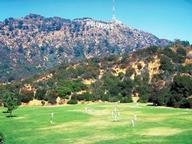Quiz Answer Key and Fun Facts
1. After hosting the 12th and 13th Academy Awards, comedian and actor Bob Hope boycotted the ceremony this year in honor of Pearl Harbor and the American entry into World War II.
2. Having been previously nominated for Best Actor for the role of Longfellow Deeds in "Mr. Deeds Goes to Town" (1936), this actor finally took home the statuette for playing Sergeant York in the film of the same name. Who was he?
3. The Oscar for Best Supporting Actor went to Donald Crisp for the role of Gwilym Morgan; coal miner and father to coal-mining sons in the heart of South Wales. In which movie?
4. Her role in Alfred Hitchcock's "Suspicion" earned her the Oscar for Best Actress, beating out her older sister Olivia de Havilland who was also nominated for "Hold Back the Dawn". Who was she?
5. Her character was concert pianist Sandra Kovak, and she won the Oscar for Best Supporting Actress in the movie based on Polan Banks' 1936 novel "The Far Horizon". Who won and what was the movie?
6. It didn't win Best Picture, despite having been voted the 'greatest film ever made' in multiple polls over the years. Who accepted the Academy Award for Writing (Best Original Screenplay) for "Citizen Kane"?
7. Sidney Buchman and Seton I. Miller accepted the Oscar for Writing (Best Adapted Screenplay) for their story about a boxer who dies an untimely death and is given a second chance back on Earth. Based on the 1938 Harry Segall play "Heaven Can Wait", what was the title of the film?
8. The National Film Board of Canada and United Artists were the recipients of the Academy Award for "Churchill's Island". In what category, new to the Oscars, did they win?
9. After having won twice previously for 1935's "The Informer" and 1940's "The Grapes of Wrath", who won his third Oscar (of four nominations) for Best Director with "How Green Was My Valley"?
10. The film that won the Academy Award for Outstanding Production (Best Picture) had ten nominations overall, winning five of them. Which film, in a way ironically in black and white, was it?
Source: Author
reedy
This quiz was reviewed by FunTrivia editor
skunkee before going online.
Any errors found in FunTrivia content are routinely corrected through our feedback system.

